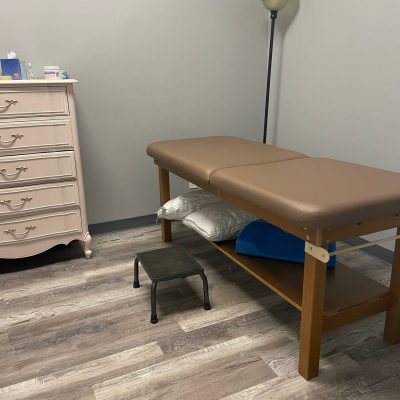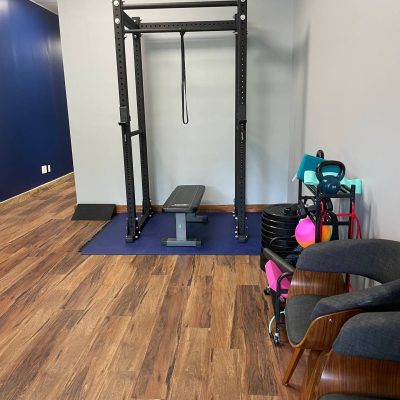As a pelvic floor therapist, I have seen firsthand how pelvic floor therapy can profoundly improve a person’s quality of life. Whether you’re struggling with chronic pain, incontinence, sexual dysfunction, or other pelvic floor issues, this therapy offers a solution that can transform not only your physical health but also your emotional well-being and overall lifestyle. Let’s explore how pelvic floor therapy can make such a meaningful difference.
What is Pelvic Floor Therapy?
Pelvic floor therapy is a specialized type of physical therapy that focuses on the muscles, ligaments, and connective tissues of the pelvic region. These muscles support your bladder, bowel, and reproductive organs, and are critical in functions such as urination, defecation, and sexual activity. When the pelvic floor muscles become weak, tight, or imbalanced, it can lead to a host of issues, including pelvic pain, urinary or fecal incontinence, constipation, and sexual dysfunction. Pelvic floor therapy helps retrain and strengthen these muscles to restore proper function.
How Pelvic Floor Therapy Enhances Physical Well-being
One of the most obvious ways that pelvic floor therapy improves your quality of life is through its impact on physical symptoms. Many people who come to pelvic floor therapy are struggling with discomfort, dysfunction, or chronic pain. One of the primary goals of pelvic floor therapy is to relieve these physical symptoms by addressing the root cause of the problem—whether it’s muscle tightness, weakness, or improper coordination.
Take incontinence, for example. Many people experience involuntary leakage of urine, especially after childbirth, during menopause, or due to aging. This can be an embarrassing and isolating condition. Through specific pelvic floor exercises, biofeedback, and manual techniques, we work to strengthen the muscles that support the bladder, helping people regain control and confidence. For those who have dealt with years of urinary incontinence, something as simple as coughing, sneezing, or running without fear of leakage is a life-changing experience.
Pelvic pain is another common complaint that pelvic floor therapy can address. Conditions like pelvic girdle pain, interstitial cystitis, or even endometriosis can cause debilitating discomfort. With techniques like internal manual therapy, trigger point release, and relaxation exercises, we work to relieve pain and reduce tension in the pelvic floor muscles. This can make day-to-day activities like sitting, walking, or exercising far more comfortable, enhancing mobility and reducing the emotional stress of living with chronic pain.
Emotional and Mental Health Benefits
The impact of pelvic floor dysfunction extends far beyond physical symptoms. Many individuals dealing with these conditions also experience significant emotional and mental health challenges, including anxiety, depression, or reduced self-esteem. Pelvic floor issues are often private, even taboo subjects, leading to feelings of embarrassment or isolation. As a therapist, I’ve seen the emotional toll these issues can take and the profound relief that can come from effective treatment.
Through pelvic floor therapy, we’re not only addressing the physical aspects of dysfunction but also empowering people to reclaim their bodies and regain a sense of control over their lives. By improving bladder or bowel control, we remove much of the stress and anxiety that comes from the unpredictability of these conditions. Additionally, the ability to engage in sexual activity without pain or discomfort can lead to improved intimate relationships, boosting confidence and reducing emotional distress.
The mental health benefits extend even further when you consider how pelvic floor therapy promotes mindfulness and body awareness. Many of the techniques we use, such as diaphragmatic breathing and relaxation exercises, help people reconnect with their bodies, fostering a sense of calm and self-awareness. This can reduce anxiety and stress, both of which can exacerbate pelvic floor symptoms.
Improving Sexual Health and Intimacy
Pelvic floor dysfunction can significantly affect sexual health, leading to issues like painful intercourse, lack of sensation, or difficulty achieving orgasm. These issues often strain relationships and can make people feel disconnected from their partners. Pelvic floor therapy helps restore muscle balance, flexibility, and coordination, allowing for pain-free and more pleasurable sexual experiences.
For example, individuals experiencing vaginismus—where involuntary pelvic floor muscle tightening makes penetration painful or impossible—can benefit from targeted stretching exercises, relaxation techniques, and the use of vaginal dilators. These interventions can lead to more comfortable, enjoyable intimacy, greatly enhancing quality of life. Likewise, pelvic floor strengthening can benefit men experiencing erectile dysfunction or premature ejaculation by improving blood flow and muscle control.
Enhancing Day-to-Day Activities
The benefits of pelvic floor therapy are not limited to relieving specific symptoms. The improvements in muscle function and control can lead to enhanced comfort in many everyday activities. Whether it’s being able to laugh without worrying about leakage, lifting your child without back or pelvic pain, or exercising with confidence, the impact on your quality of life is undeniable.
Many people also find that physical improvements lead to greater participation in social activities. Conditions like incontinence or pelvic pain often prevent individuals from engaging in their usual hobbies or social events, leading to isolation. By reducing or eliminating symptoms, pelvic floor therapy allows people to re-engage with their community and live more active, fulfilling lives.
Conclusion
Pelvic floor therapy has the power to change lives. By addressing both the physical and emotional aspects of pelvic floor dysfunction, we help individuals regain their sense of control, comfort, and well-being. Whether you’re dealing with incontinence, pain, or sexual dysfunction, pelvic floor therapy offers a path to better health, improved quality of life, and a restored sense of normalcy.







